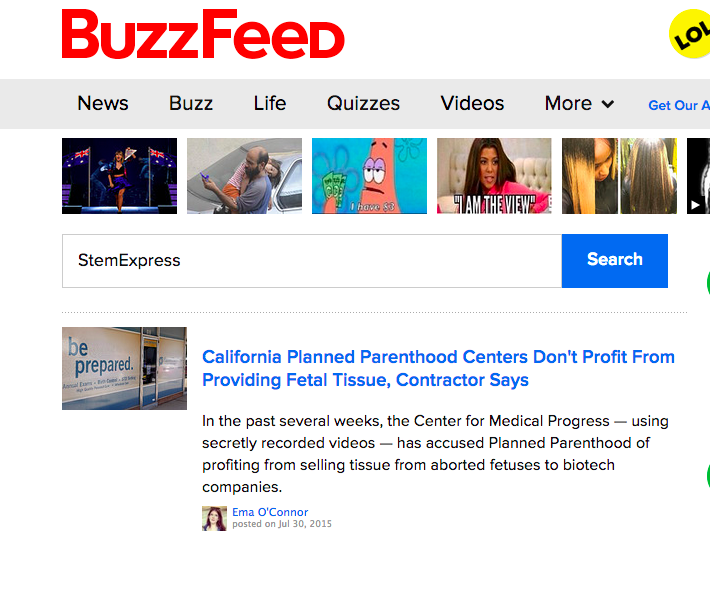
As a general rule, I don’t think conservatives should constantly harp about the bias of mainstream news. That’s not because I think the bias isn’t there (it absolutely is, as anyone who watches 1 hour of Fox News and MSNBC can immediately perceive). Rather, it’s because I think the bias of mainstream news is much better explained by a religiously traditional, conservative worldview than it is by a secular progressive one. Instead of constantly crying foul when journalistic bias manifests itself–and let’s be honest, crying foul doesn’t even tend to accomplish much for–I think conservatives would be better served by explaining that bias is inevitable because human beings are inherently selfish and oriented towards interpreting the world in a way that exonerates them and vilifies their opponents. That’s human nature, and human nature stinks; a sentiment which is, by the way, a beginning point of all traditionalist thought.
But sometimes we are confronted with such naked, aggressively obvious journalistic mischief that to not call it out would be to bury our heads and consciences in the sand. And then other times, the way something is misreported or misrepresented can be far more than a political scrimmage or a culture war skirmish; sometimes bad journalism is a matter of life and death.
In the case of big media, abortion, and the Planned Parenthood expose videos, we have a case of both.
I’ve put together three recent examples of how mainstream media channels are refusing to follow the evidence about Planned Parenthood, or else, are so clearly ideologically beholden to abortion culture that they will not even allow the possibility that something nefarious is going on.
1) This week, both Politico and The New York Times ran stories about the results of an “analysis” of the Center for Medical Progress’s first four videos about Planned Parenthood. Planned Parenthood itself had commissioned an organization, led by a former Wall Street Journal writer named Glenn Simpson, to watch the CMP’s first four published videos and (again, using their word) “analyze” the videos for evidence of deceptive editing or manipulated video–both of which are accusations that Planned Parenthood has levied against the videos from day one.
Now let’s stop right there and ask ourselves a basic question: If Planned Parenthood approached an organization to research whether a series of videos really do show criminal and morally barbaric behavior in their clinics, what do you think the results of that (commissioned) investigation are going to be? Let’s put it another way. Let’s say that a large manufacturer of guns were videotaped trying to put automatic weapons in the hands of minors. And then let’s say that, in response, the manufacturer approached a “fact-checking” organization, which happened to be led by a card carrying member of the National Rife Association, and asked them to look at the alleged video evidence and see if it truly does show what the manufacturer’s outraged critics say it shows. What do you think the organization and its NRA-card carrying leader are going to say they discovered?
Of course, they’re going to exonerate the manufacturer. And sure enough, that’s what this “fact checking” organization did for Planned Parenthood. The problem is that Glenn Simpson, who led Planned Parenthood’s commissioned analysis, is a noted progressive figure who has worked on behalf of the Democratic party. Yes, the same Democratic Party which includes abortion access in its political platform, and the same Democratic party whose presumptive presidential nominee just compared pro-life activists to terrorists.
None of this information found a way into either Politico or The New York Times’s coverage. Instead, the headlines read quite simply that an analysis of the CMP’s videos found that they were edited. That’s it. No mention of the political commitments of the people doing the analysis. No mention of Glenn Simpson’s previous work for the Democratic party. By running the story they way they did, both the Times and Politico helped Planned Parenthood’s narrative merely in exchange for the word of its allies.
2) About two weeks ago, The Federalist reported that the senior health editor for Buzzfeed was given an award for “Media Excellence.” Whom was the award from? You guessed it: Planned Parenthood. PP actually gives awards regularly to pro-choice journalists. But this particular case is different because Buzzfeed’s coverage of the CMP’s videos has ranged wildly from total silence to jokes.
Buzzfeed’s coverage of the scandal has been so scant, in fact, that a search query on Buzzfeed’s site for “Stem Express” (styled StemExpress) yields only one hit. This is particularly odd because StemExpress is the tissue harvesting company at the heart of many of the video’s most damning footage. Holly O’Donnell, whose testimony comprises several of the videos, is in fact a former employee of StemExpress. And, if nothing else, StemExpress was recently in the news for severing its professional ties to Planned Parenthood. Despite Buzzfeed’s advocacy on behalf of abortion rights, not a single word about Stem Express has been published, save a July 30 piece which quotes StemExpress defending their practice.
It’s fairly clear that Buzzfeed’s editorial process is guided by ideological commitment to Planned Parenthood’s narrative. The natural journalistic impulse would be, presumably, to write about StemExpress’s decision to separate from Planned Parenthood given the fact that they defended the content of the videos. But alas, Buzzfeed’s readers are denied such a complete picture, while its journalists receive awards from the organization they cover.
3) The last item on this list is my personal favorite even though it doesn’t explicitly concern Planned Parenthood. Dylan Matthews, an editor at Vox.com–a large news and opinion site edited by Ezra Klein–recently solicited a piece from Tobjorn Tannsjo, a professor in philosophy at Stockholm University. Matthews asked Tannsjo to write a popular level article with a thesis that would, in Matthews’s words, “argue for provocative and/or counterintuitive propositions that our readers might find intriguing.”
Professor Tannsjo responded by sending Matthews a piece arguing–merely hypothetically–that humans are morally obligated to have as many children as they possibly can. Again, this was a piece commissioned for the explicit purpose of providing Vox’s readership with something they would instinctively disagree with. It was by a self-identified pro-choice Ph.D. professor of philosophy.
Matthews received the piece and responded thus:
Afraid I have to be the bearer of bad news, Torbjörn. I ran the piece by some other editors and they weren’t comfortable running it; I think the concern is that people will misinterpret it as implying opposition to abortion rights and birth control, which, while I know it’s not your intent, is a real concern.
This is, of course, about as directly and forcefully as you can possibly waste a professor’s time. That Vox’s editors recoiled from the mere suggestion–a rhetorical one at that!–that abortion and birth control may not be moral is an astonishingly transparent confession of ideological commitment.
The situation looks none the better after Klein responded personally to Dr. Brian Leiter’s blog post.
I’m personally pro-choice, but Vox doesn’t have a policy against publishing pieces that are pro-life. Back in January, for instance, we sent two reporters to a pro-life rally for a piece that was simply portraits of pro-life protesters, as well as their reasons for being pro-life and attending the protest. The piece was basically 10 arguments for being a pro-life protester, and it was a great article.
Vox also doesn’t have a policy against hiring pro-life writers. We’ve made job offers to at least two pro-life political writers. These hires didn’t ultimately work out, but the fact that their pro-life views would be reflected in their work had nothing to do with it. (Some of Vox’s current staffers are pro-life, though their coverage areas don’t intersect with the issue much.)
I’m not sure why Klein didn’t sense the ridiculousness of this response before he published it. To say that Vox has no policy against pro-life pieces and then point to one piece written 8 months ago–well before, by the way, Planned Parenthood came under Congressional investigation–about a pro-life rally stretches the limits of credulity. It seems pretty obvious that Vox is committed to its publication’s being a pro-choice publication. That’s certainly their right, of course. But if an organization built around journalism is afraid of even appearing to challenge a cultural orthodoxy, it might be fair to suggest that, for them, the issue is less one of political solidarity and more one of religious dogma.











